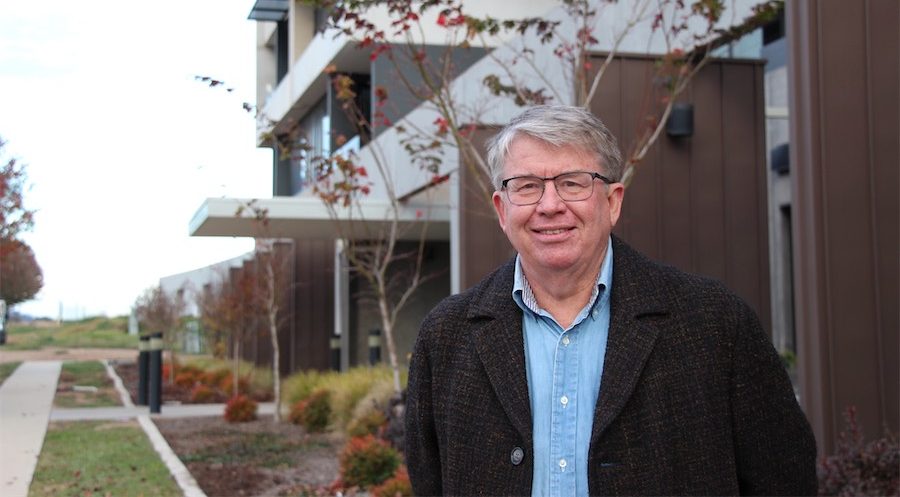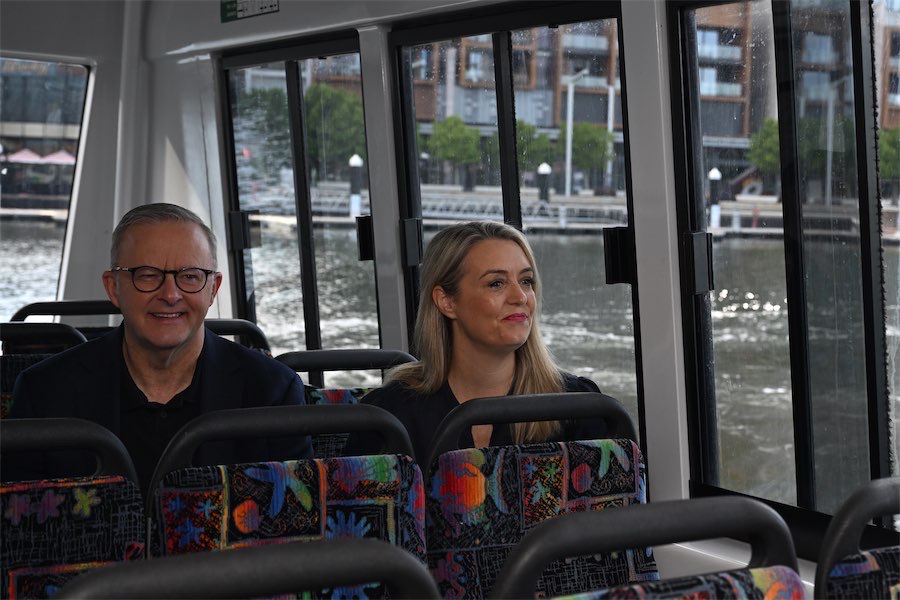
THERE’S been controversy around Section 72, Dickson, for years, but Stephen Bartos, chair of the community housing group Common Ground, says it shouldn’t be the reason for Canberrans to turn their back on helping homeless people.
“We’re not involved with the planning processes and certainly don’t want to be,” says Stephen in reference to the land swap and sale between the ACT government and the ACT Tradies, which then led to much of the site being sold by the Land Development Agency for development.
As part of that development, the ACT government set aside $2.4 million in last year’s June Budget for a Common Ground complex to be built, following the success of the Common Ground building in Gungahlin.
However, the issue is that the community is calling for the land to be used for a cultural and recreational precinct with parkland, and while Stephen understands there are concerns, he urges people to not let the controversy get in the way of helping chronically homeless people.
“We’re well aware there’s been controversy around the site,” he says.
“We accept all of that and we encourage people to pursue those concerns but don’t let that prevent [Common Ground] going forward with an initiative that will help homeless people.
“None of that has anything to do with Common Ground. The building is a worthwhile initiative and that will be recognised, even by people who have other concerns around how the ACT government has handled things.”
The Dickson Common Ground, which will have a mix of one-bedroom and two-bedroom apartments for family groups and individuals, will complement the Gungahlin facility, built specifically five years ago for individuals facing homelessness.
“I found that this was a model that actually did things that offered hope for people that otherwise would have never been able to hold down a house,” says Stephen.
People might not be able to hold down housing for reasons such as family violence, drug or alcohol problems, mental health problems, or having difficulties connecting to other people in the community.
Built on a model that provides onsite support for people living in a Common Ground facility, Stephen says it’s not just about finding someone housing.
“There’s a group of people onsite who will work with individuals on a case-by-case basis to find them the support they need, whether it’s psychological support or medical support.
“We want to keep them working towards being able to live a happy life.”
One of the reasons Common Ground works so well, is it’s not just social housing, and is a mix of people with different needs, from different age groups, Stephen says.
“It’s about having role models and being a normal-functioning community. It’s not a hostel, it’s a decent home for people,” he says.
The main principle for Common Ground is about providing safe and permanent housing. But it’s not uncommon for people to get a higher-paid job, partner up or move out on their own accord, says Stephen. They just need the stability of permanent housing first.
“Common Ground is safe and permanent, and of high quality. The aim is to build housing for people that they’re really proud to be living in, [which is] good for their mental health.”
And while Stephen says Common Ground has been embraced in the Gungahlin community, there is still a stigma around homelessness, which has seen some negativity towards building another in Dickson.
“Some people think people become homeless by some sort of moral failing. That’s absolutely not true. Almost anyone can become homeless by a run of bad luck,” he says.
“[At the Gungahlin Common Ground] you’ve got a high-quality building, a bunch of residents that are well-settled, who interact well in the community.”
For example, Stephen says they put on an art exhibition in the building annually, which is something they want to see more of in the Dickson Common Ground.
“One of the objectives that we hope to do better in Dickson is we want activities that take place in Common Ground to be open to the community as well,” he says.
While Stephen is unsure about the industry capacity to build in light of COVID-19, the objective is to start this year.
“The location is terrific in terms of access to shops, access to medical centres, public transport and the swimming pool is a bonus,” he says.
Who can be trusted?
In a world of spin and confusion, there’s never been a more important time to support independent journalism in Canberra.
If you trust our work online and want to enforce the power of independent voices, I invite you to make a small contribution.
Every dollar of support is invested back into our journalism to help keep citynews.com.au strong and free.
Thank you,
Ian Meikle, editor









Leave a Reply